Last Updated: 2 months ago
People fall in love with cats for a variety of reasons: character, appearance, or even just a connection they feel when they first meet.
Hereditary medical problems are probably not a consideration. The heart wants what it wants, and you can’t control which kitty you instinctively form a bond with.
Of course, you want your cat to live a long, healthy life and will do everything in your power to make sure that happens.
Sadly, some breeds are more likely to face health problems than others, often due to hereditary issues caused by inbreeding.
So, it’s wise to do a bit of research on the healthiest cat breed if you’re looking for a new feline companion.
When searching for a new feline friend, you want to be sure that they’ll live a long life with you. So, it makes sense that you want to know which has the least chance of developing major problems!
8 Healthiest Cat Breeds
We’ve looked at many of the things that can influence your cat’s health and what you can do to take care of her.
We’ve found evidence to suggest that mixed-breed cats are less likely to suffer from the problems caused by inbreeding.
That doesn’t mean that purebred cats can’t live a long healthy life too. Many are just as robust as mixed-breeds.
Without further ado, and in no particular order, here is a selection of the healthiest cat breeds.
1. Chausie
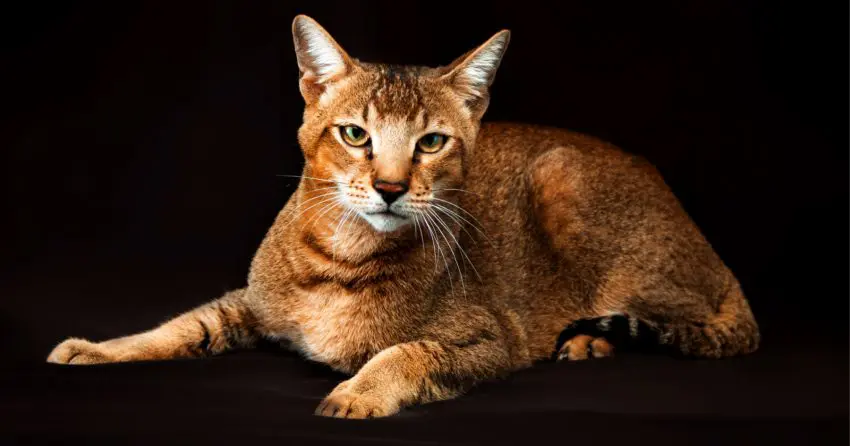
The Chausie is the result of crossing Jungle cats and domestic cats.
They have a wild appearance with the more friendly traits of a domestic cat.
A well cared for Chausie will live between 12 and 14 years on average.
Chausies are not known to suffer from hereditary diseases and are a healthy breed in general.
This is thanks to the genetic diversity of the breeds crossed to produce the Chausie. A theme we will see throughout the breeds on this list.
2. British Shorthair
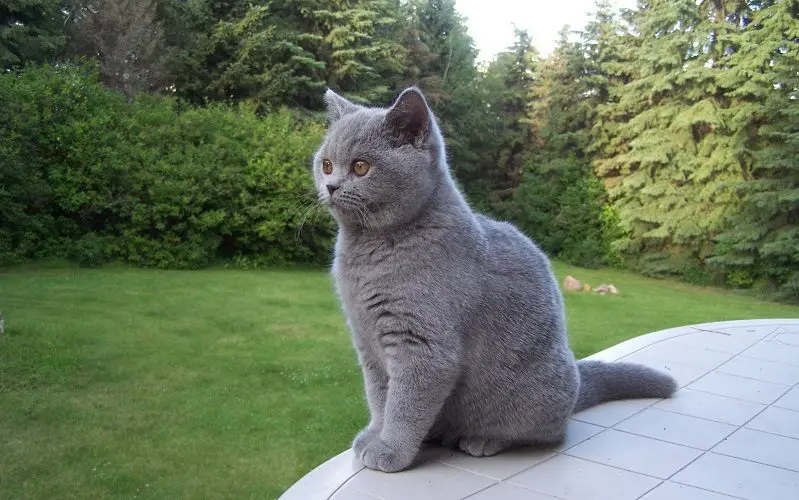
The British Shorthair is a pedigree version of the everyday British domestic cat. They are devoted, sweet-natured animals.
According to TICA, this popular breed has an average life span of 12 to 20 years.
British Shorthairs are robust, but TICA advises that they are at risk of hypertrophic cardiomyopathy (HCM).
You can mitigate this risk to some extent by using trustworthy breeders who make use of medical screening.
Don’t support a bad breeder.
3. Havana Brown
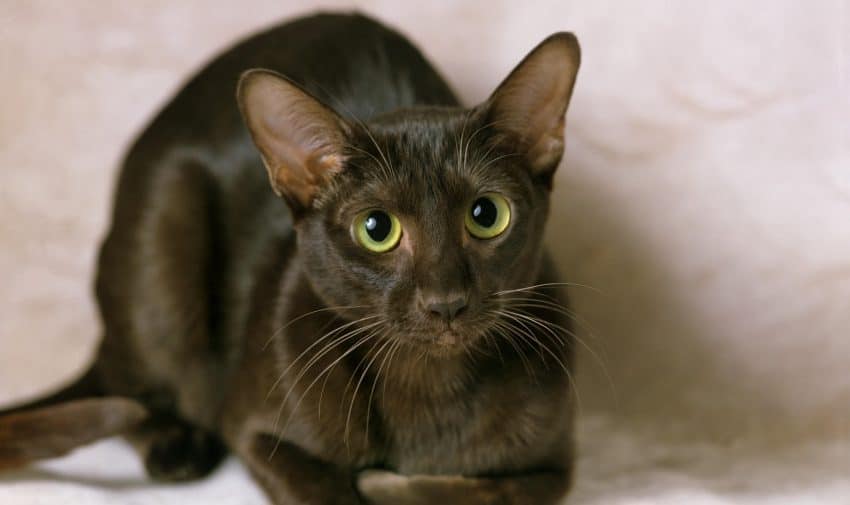
The Havana Brown is the result of crossing Siamese and domestic black cats.
These intelligent cats become very attached to their humans.
The average life expectancy of the Havana Brown is 15 years. There is plenty of time to enjoy the company of this affectionate breed.
Havanas are generally thought of as resilient and healthy, but they can develop calcium stones in the urinary tract.
Havana Browns are extremely rare, and breeders are taking steps to allow broader cross-breeding to save them from extinction.
4. Russian Blue
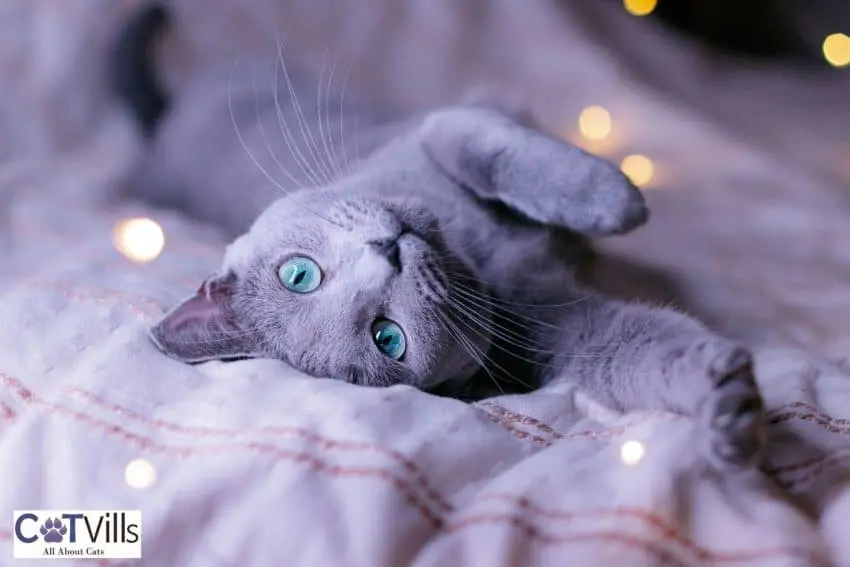
As the name suggests, people believe the Russian Blue originated in Russia and was first brought to Europe by sailors.
Did you know that there are now three sub-breeds of Russian Blue; Siberian, American, and English.
It’s quite common for a cat to be a mix of these three sub-breeds, which is excellent for ensuring genetic diversity.
As a result, Russian Blues do not have any documented breed-specific illnesses and can live for 15 to 20 years.
5. American Shorthair
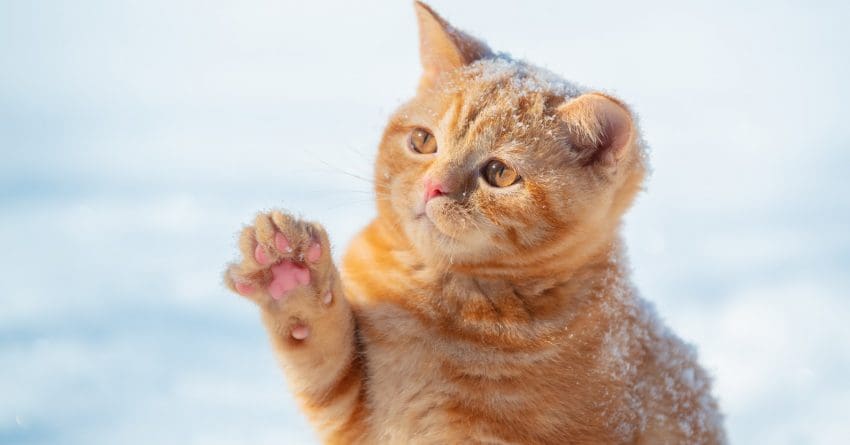
According to popular belief, the American Shorthair is descended from European cats that arrived in America with the early pioneers.
They have an average life span of 15 to 20 years in a loving home. This gentle, domestic breed make wonderful family pets.
Prestige Animal Hospital reports that the American Shorthair is a healthy cat breed that doesn’t have specific issues.
Overeating and lack of exercise cause them to gain weight quickly, a problem not limited to cats!
6. Japanese Bobtail
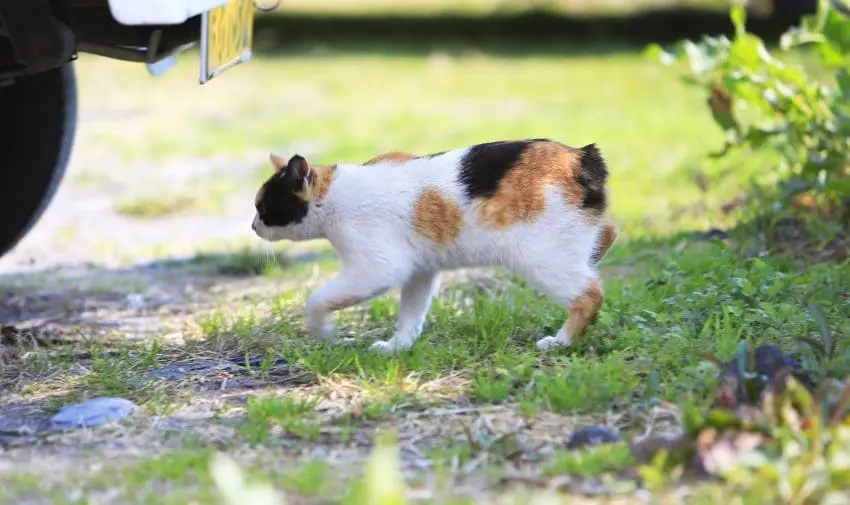
The Japanese Bobtail is a distinctive breed, easily recognized by its extremely short tail, a genetic trait passed down through generations.
Unlike the Manx Cat, the tail’s genetic mutation doesn’t result in any skeletal problems for this talkative breed.
A study that shows the Japanese Bobtail is one of the most genetically diverse pedigree breeds.
Perhaps that is why they generally live between 9 to 15 years and have no specific hereditary problems.
7. Siberian
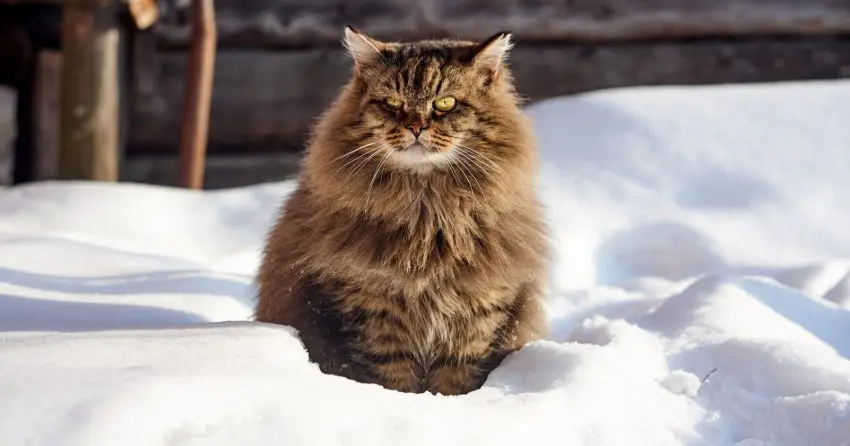
The Siberian Cat, a.k.a Siberian Forest Cat, is historically from Russia. Their thick coats would undoubtedly have helped keep them warm.
Described by owners as dog-like, Siberians are loving, cuddly, friendly cats that make a great family pet.
Siberians are a natural breed, meaning humans didn’t breed them by design. Subsequently, they enjoy genetic diversity and are a healthy breed.
On average, this breed lives between 11 to 18 years. However, they are at an increased risk of hypertrophic cardiomyopathy (HCM).
8. Bombay
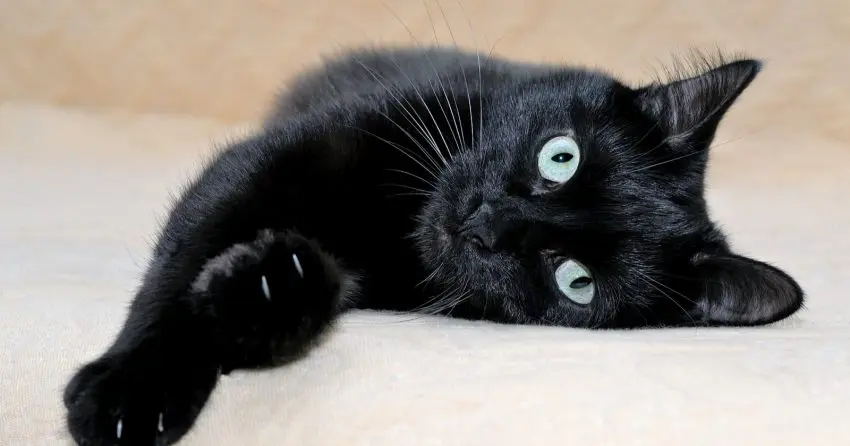
The Bombay looks like a miniature panther. Humans created the breed by crossing black American Shorthairs with sable Burmese.
Vets believe Bombays to be a healthy breed and have a life expectancy of 12 to 16 years. They are energetic cats that love to be the center of attention.
Purina tells us that Bombays can be at risk of a genetic craniofacial defect but that responsible breeders are making efforts to avoid breeding cats with the gene.
They can suffer from hypertrophic cardiomyopathy (HCM).
Excessive tearing of the eyes and breathing issues due to their flat faces are other conditions to look out for.
What Determines a Cat’s Health?
A cat’s overall well-being is the sum of many parts. We can loosely group these into three sections; lifestyle, environment, and genetics.
You have full control over your cat’s lifestyle. You’re responsible for her diet, healthcare, exercise, and her home environment.
You decide if she can go outside but have to accept that what happens outdoors is generally going to be beyond your control.
Genetics is something you don’t get a say in. If your cat is predisposed to specific health issues, all you can do is keep a close eye on her.
Do Purebred Cats Have Health Problems?
No cat is immune to poor health, and chance will always play a role in whether or not your kitty comes down with something.
However, Royal Canin states that purebred cats can face an increased risk of genetic health problems.
They explain that humans create a breed by selective reproduction of animals to give desired characteristics such as appearance and behavior.
With an established breed, only cats seen as good examples will be used to breed the next generation.
If only a small pool of cats is suitable for breeding, inbreeding is likely to occur, increasing the risk of genetic problems.
Are Mixed-Breed Cats Healthier?
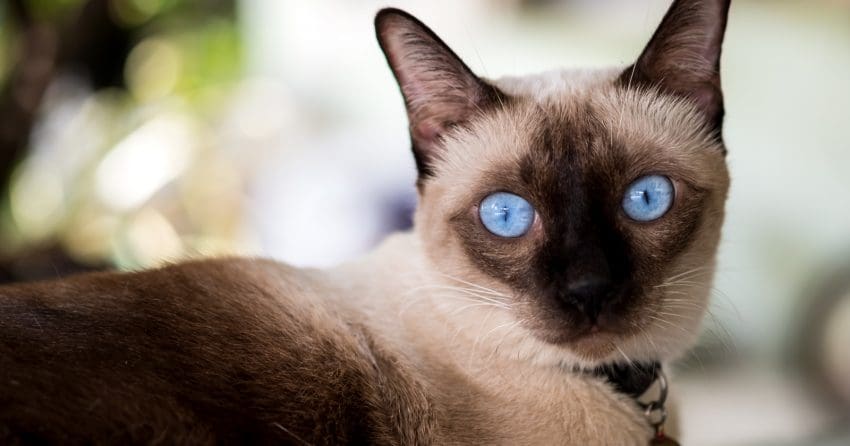
Mixed-breed cats, also known as moggies, are often thought of as being healthier than their purebred relatives.
This is mainly due to the fact that they aren’t selectively bred and have a much broader gene pool.
Dr. Kathryn Primm told that mixed-breed cats face a lower risk of genetic disorders, especially those from a rescue or shelter.
This doesn’t mean they’re immune to sickness; they could still suffer from hereditary diseases and other medical issues. It’s just less likely.
Why Do Some Cats Live Longer?
To answer this question, we need to look at why cats pass away.
The most common cause of death for the cats in the study was trauma, e.g., car accidents or other environmental injuries.
This accounted for 12.2% of the recorded deaths, with renal failure being the second most common cause at 12.1%.
The study found that mixed-breed cats lived longer than pure-breeds. It also showed that neutering positively affected lifespan.
So the most significant influence on a cat’s lifespan has nothing to do with her breed; it’s more likely to be down to her environment.
Which Breed of Cat Lives Longest?
According to the Guinness Book of World Records, Creme Puff, the oldest cat on record, lived for an incredible 38 years and 3 days.
She was a mixed-tabby cat and lived in Austin, Texas. Her owner also had another cat that lived for 34 years.
It’s not just mixed-breed cats that can live longer than we might expect. A Maine Coone named Rubble lived to be 31.
And a Siamese named Scooter passed away at the ripe old age of 30. Quite an achievement!
7 Tips to Keep Your Cat Healthy
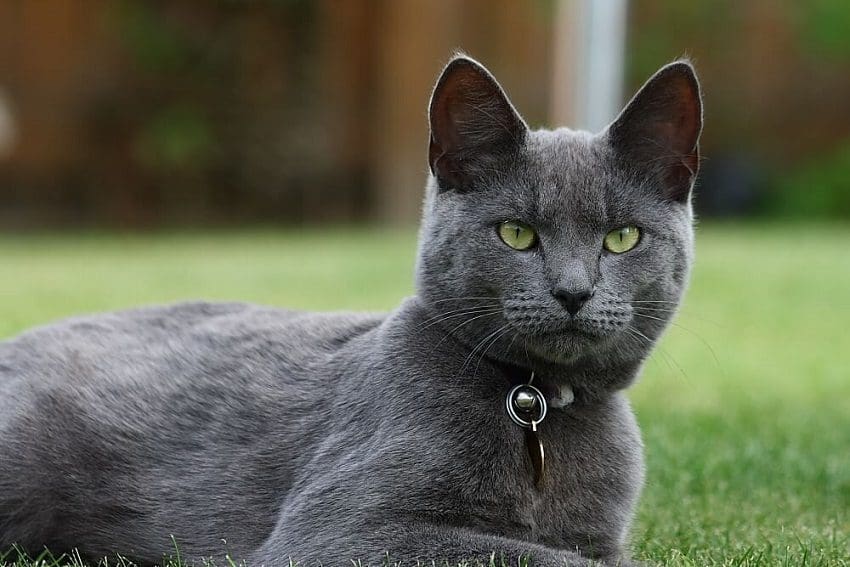
Regardless of breed, there are plenty of things you can do as a pet owner to keep your furry friend healthy and ensure they live a long, happy life.
- Food – Give your cat high-quality food and use the pack guidelines as a starting point for portion sizes. Monitor her weight and adjust accordingly.
- Water – Give your cat access to clean, fresh water and keep an eye on their intake. Adding wet food to her diet also helps to keep her hydrated.
- Exercise – Play with your cat and do things to enrich her environment. She has energy to burn and needs mental stimulation.
- Cat Litter – Keep your cat’s litter box clean, and she’ll be happy to use it. You get an opportunity to check on her health when you scoop that poop.
- Grooming – All cats can benefit from a little help with grooming. It reduces hairballs and allows you to spot any changes in her body too.
- Meds – Your cat doesn’t have to be sick to need medication. She needs to be vaccinated and treated for fleas and other parasites in your region.
- Vets – It’s good to get your cat to the vet for a check-up now and again. They can help with trimming claws and spot any warning signs early on.
Final Thoughts
So there you have it, a pretty comprehensive review of some of the healthiest cat breeds out there.
I found a lot of varying information on which breeds were healthier than others when I researched this article. There is no single stand out winner for the title of the healthiest cat breed.
All cats can get sick, and in some ways, it’s sometimes down to luck. Some breeds have hereditary problems, but modern science enables responsible breeders to screen their animals and limit the continuation of bag genes.
For outdoor cats, the environment is far more likely to prevent them from reaching a healthy age than any illness.
Whichever breed of cat you decide to welcome into your family, make sure you do your homework.
Consult the relevant breed association, use a reputable breeder and inform yourself about the possible health issues your chosen breed is prone to having.
What do you think? In your opinion, what is the healthiest cat breed? Tell me below!
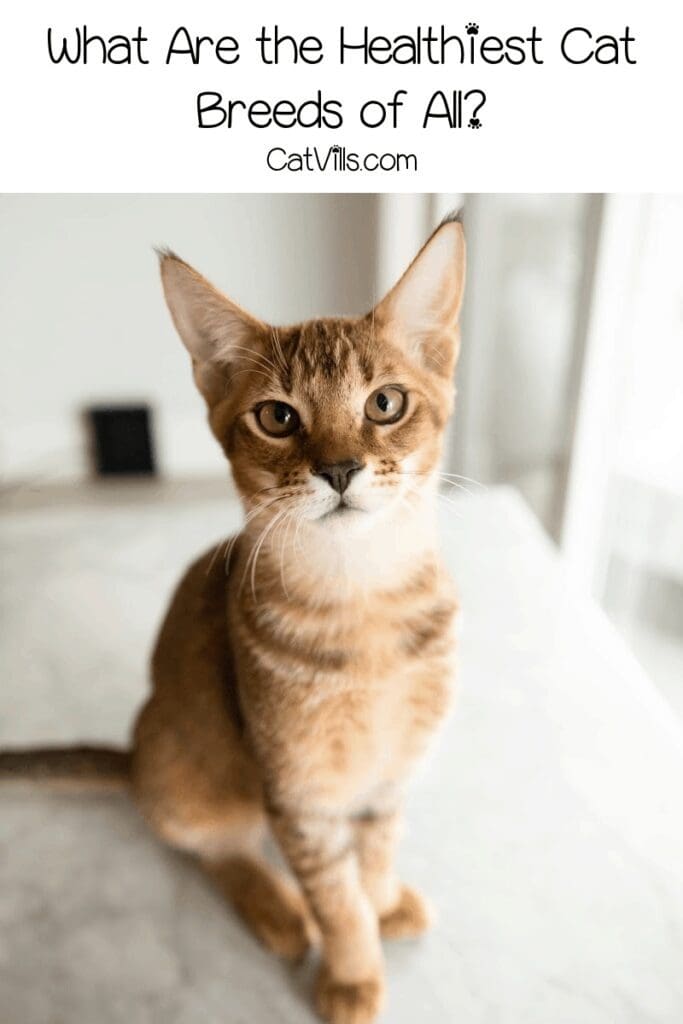

Barry Stingmore is a British content creator living in Fuerteventura, Spain. An animal lover at heart, he shares his home with a dog and four rescue cats. Barry works with the island’s animal charities to help manage and care for feral and abandoned animals. Alongside fieldwork, he works to support the charities with fundraising and raising awareness.
